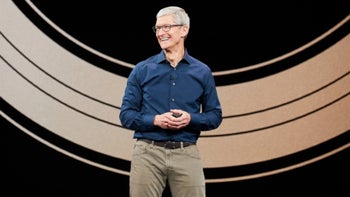Tale of two CEOs named Tim: Cook wants to move on while Epic's Sweeney wants to rehash on appeal

It has been a week since Judge Yvonne Gonzalez Rogers released her 185-page decision in the Epic v. Apple trial. As to which company came out the victor, all we can say is that Epic acts like the loser and Apple acts like the winner. An injunction blocks Apple from banning developers from pointing their customers to in-app payment platforms outside of Apple's, but the judge shot down everything else that Epic wanted including a ruling that would force Apple to install Epic's app store on the iPhone.
The judge also notably stated that "Given the trial record, the Court cannot ultimately conclude that Apple is a monopolist under either federal or state antitrust laws." She also said that "success is not illegal." Apple general counsel Kate Adams said, "We are very pleased with the court’s ruling and we consider this a huge win for Apple." On the other hand, Epic CEO Tim Sweeney was more down on the judge's ruling saying that Epic "will fight on" which it did by appealing the decision.
Tim Cook would prefer to look ahead while Tim Sweeney wants to rehash it all by appealing
If appealing the decision means having to relive the who court battle again, Apple's CEO would prefer to look ahead. Tim Cook told Apple employees that he is "looking forward to moving forward" following the decision in the case. The Verge was able to obtain a recording of the meeting that Cook had with Apple workers and on the recording Cook is heard to say, "If you sort of back up and remember what the App Store is about, the App Store was built to be a trusted place for users so they could go explore and discover apps."

Epic CEO Tim Sweeney says that the judge's ruling is not a win for developers or for consumers
The executive added that the App Store was created to give developers a great business opportunity. Cook said that "Epic came along and wanted basically to be handled in a special way. Our rules are that we treat everyone the same. They ask us repeatedly to treat them different, we said no, and they sued us on 10 different items."
Of those 10 items, Cook pointed out that the judge ruled in favor of Apple on nine of them and in Epic's favor on one issue. As Apple's CEO stated, "Most importantly, they ruled that Apple is not a monopoly, which we’ve always known. Apple is in a fiercely competitive market." He also has yet to say whether Apple will appeal the one decision it lost, the anti-steering ruling which as we already said, allows developers to point subscribers in the direction of alternative payment platforms.
With the judge saying that Apple is not a monopoly, Cook hopes that lawmakers agree
Sounding like someone who is ready to put the past behind him and deflect the piercing stares from lawmakers, Cook said, "I think the ruling will be very good to try to put some of the discussions to rest on the App Store. In terms of the one we lost, there were one or two sentences scratched out of an agreement, that was the extent of it. I’m sort of looking forward to moving forward now."
Apple must stop enforcing its anti-steering rules by December since the judge ruled that they violate California’s Unfair Competition Law. Speaking of laws, both the House and the Senate have the Open App Markets Act to consider. In both chambers, the bill was introduced by bipartisan lawmakers. The bill is written to "set fair, clear, and enforceable rules to protect competition and strengthen consumer protections within the app market."
To turn the Open App Markets App into law, both the House and Senate will need to pass the bill and reconcile and differences before it is voted on by both chambers one last time. If it makes it through the final voting, it gets sent to the president to be signed or vetoed. And if it is the latter, two-thirds of the House and two-thirds of the Senate must agree to override the Commander-in-chief.










Things that are NOT allowed: